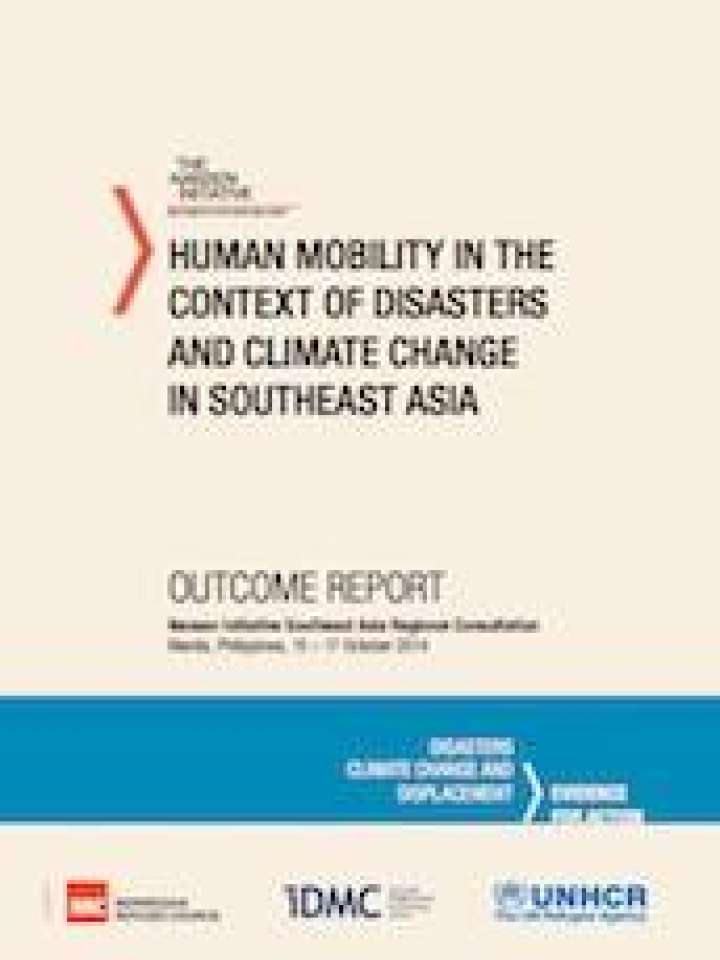Human mobility in the context of disasters and climate change in Southeast Asia: Outcome report
This report summarizes the outcomes of the fourth Nansen Initiative Regional Consultation, which was hosted by the Government of the Philippines in Manila from 15 – 17 October 2014 to discuss “Human Mobility in the Context of Disasters and Climate Change in Southeast Asia.”
The overall objectives of the Nansen Initiative Southeast Asian Regional Consultation were to identify specific challenges and opportunities that the region faces related to disasters, climate change, and human mobility. There was also a focus on developing practical, policy and programmatic recommendations on how to address these challenges at national, regional and international levels.
Conclusions reached during the Consultation include the need to:
- Develop and institutionalize community-based and traditional disaster risk mapping tools and methodologies to identify populations most exposed to natural hazards and at a high risk of displacement, including groups particularly at risk such as children, women, older persons and persons with disabilities.
- Integrate mapping of disaster-related displacement risks with climate change risk scenarios and projections to inform national and regional disaster preparedness and contingency planning, disaster risk reduction, climate change adaptation, planned relocation plans, and development plans.
- Establish early warning information systems, clearly describing the hazard, the populations most at risk of displacement, and evacuation corridors and sites. Distribute such information in ways that affected communities can easily understand.
- Increase general awareness on the importance of climate change adaptation and disaster risk reduction, enhance local capacity in this regard, and encourage local communities to make their own plans with the support of local and national authorities, civil society and the private sector.
Explore further
